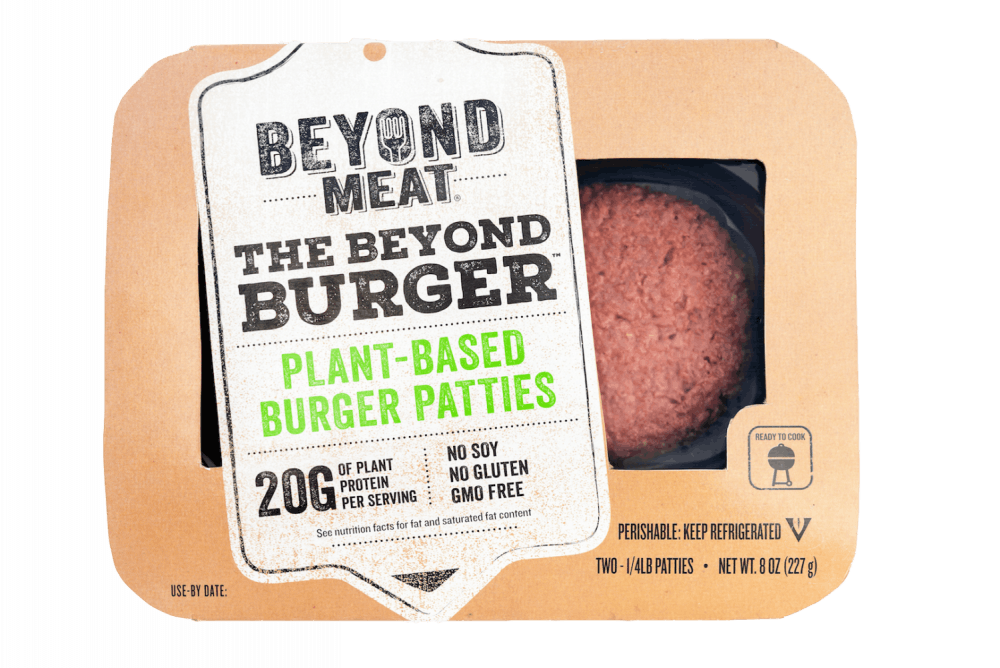Veganism — perhaps the biggest thing in 2019 after the movement to storm Area 51 and the Keanu Reeves Renaissance. Fast food chains are producing vegan burgers with meat-free patties, and a recent Economist article showed that sales of vegan food “rose ten times faster than food sales as a whole.” Today, about 3% of the U.S. population identify as vegan, and this number is growing, especially among Millennials and Gen Z’s, according to a Gallup poll in 2018. Does this mean that all of us should go vegan? We can turn to economics for an answer.
In deciding whether to eat vegan, we should first consider whether it is what we want. As consumers, we make decisions to buy based on our individual preferences. Choosing to switch our diets depends on our preferences defined by a number of factors: our taste for vegan food, the extent of our value for our health and the environment, etc. The utility — or pleasure — we get from leading a vegan life will determine whether we ultimately decide to lead this lifestyle.
Of course, this assumes that we are perfectly aware of our preferences, which is not always the case. Martin Abel,Professor of Economics said: “People may not have tried vegan food, or have misconceptions. [This is] the ‘status quo bias’ - a tendency to stick with the familiar.” Preferences can also fluctuate depending on tastes and opinions, and perhaps more subtly, exogenous factors, such as advertising, the media, norms and exposure.
We know our preferences; still, whatever our preferences are, we are limited by scarcity. Thus, our decision to become vegan also depends on whether it is possible for us. Typically, economists identify cost as a constraint. According to a study by Diana Cassady, Professor of Public Health Sciences at the University of California, Davis, low-income Americans would have to spend 43% to 70% of their food budget on fruits and vegetables. A large part of this is because the locations where many low-income Americans shop are convenience stores rather than supermarkets and grocery stores. Not only do convenience stores tend not to provide fresh produce, constraining access, but those that do tend to charge more.
[pullquote speaker="Jackson Evans '22" photo="" align="center" background="on" border="all" shadow="on"]I didn’t like the taste of meat and that killing animals wasn’t really something I wanted to support[/pullquote]
At the same time, a large reason why stores can afford to overcharge or simply not supply vegan options is due to the lack of demand for these products. Economic theory suggests, however, that if more people begin demanding vegan food, the price of these products will increase. However, producers — farmers, restaurants and stores — will see this as an opportunity to profit and enter the market. As a result, the supply of vegan food would increase, offsetting the price and making vegan options more affordable. This also addresses the unemployment argument, where veganism will lead to a huge surge of unemployment in the meat industry; while this is true, it is also important to understand the jobs that may open up in place.
Then, the question becomes whether we should go vegan. Jackson Evans ’22 states that animal treatment was a large motivator his decision to go vegan four years ago. “I didn’t like the taste of meat and that killing animals wasn’t really something I wanted to support,” Evans said. In economics, these moral and environmental costs are referred to as externalities.
Recent research from the University of Oxford has shown that veganism is “the single biggest way to reduce your impact on planet Earth.” Using a “vegan calculator” to figure out the marginal effect of going vegan, one year of veganism could save 7,436 pounds of CO2 from being released, and 401,766 gallons of water. There is also the humanitarian factor, which Evans cited earlier to be industrial farming. Industrial farming reflects the inhumane conditions of the farms, including overcrowding, abuse of antibiotics for stress and illness and breeding for fast growth or high yield of meat. Technology has made farming all-too-efficient, which can be illustrated through a U.S. Department of Agriculture report, citing total commercial red meat production in September 2019 alone at 4.44 billion pounds. While animal welfare is not included in the traditional economic welfare framework, there should be lots of thought given to how living beings are treated, and how this could reflect our own wellbeing and welfare.
So should we go vegan? It really depends on our preferences, constraints and how we will affect those around us if we don’t. Then, how about Midd’s dining halls? We’ve already seen Meatless Mondays take over Proctor and Ross, and word is going around that Atwater will be increasing vegan food production in J-Term (see News, Page 2).
First, let’s start thinking about the preferences of the dining halls. Dining Services’ preferences are likely most focused on foot traffic. Granted, a dining hall that is all vegan would likely lose a significant number of student diners; however, if the kitchen were able to build a menu that appeals to students regardless of being vegan, this could alleviate the loss of non-vegans. Next, we turn to constraint. Finally, we can look at how becoming vegan will affect others. Environmentally, it will have a significant impact, saving hundreds of thousands of gallons of water and pounds of CO2 gas. By going vegan, the dining halls could change the dining habits of Middlebury students. Remember the status quo bias from before? Abel suggests that this change could transform students’ preferences: “[People can] discover their preferences… by being forced to experiment and try and develop new habits.” As a result, more students could decide to go vegan. Evans described this to be the case when he first got to Middlebury: “[H]ere when all the options are there, it’s simple and is congruous with my thoughts on not hurting animals, and attempting to mitigate our climate disaster.
Column: The economic case for going vegan

Comments



